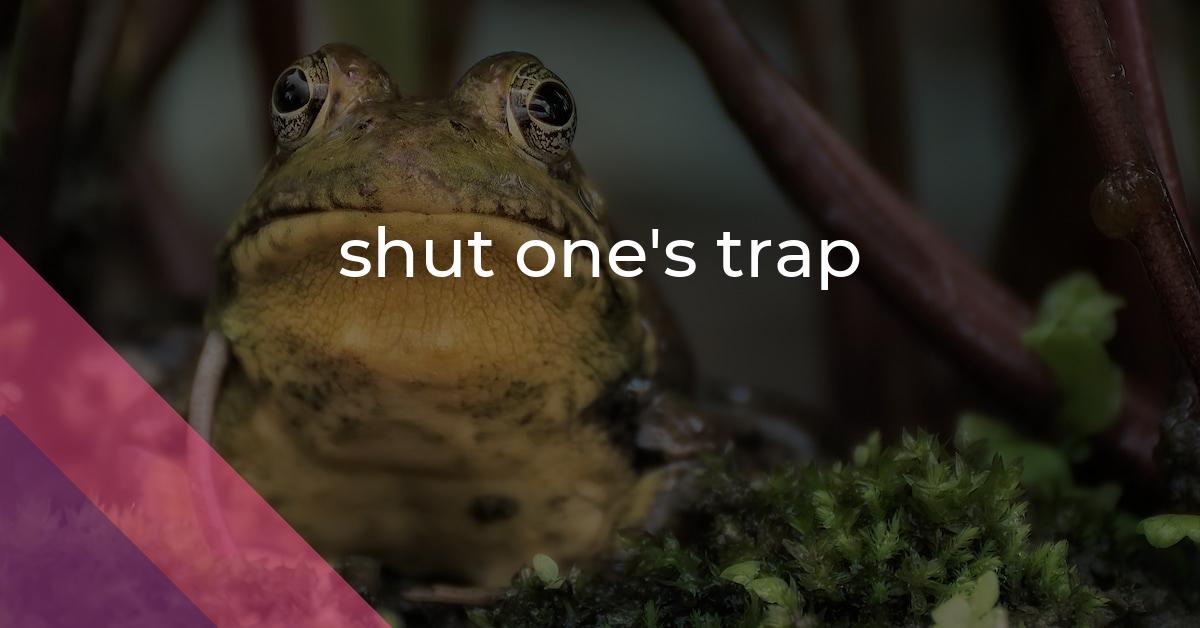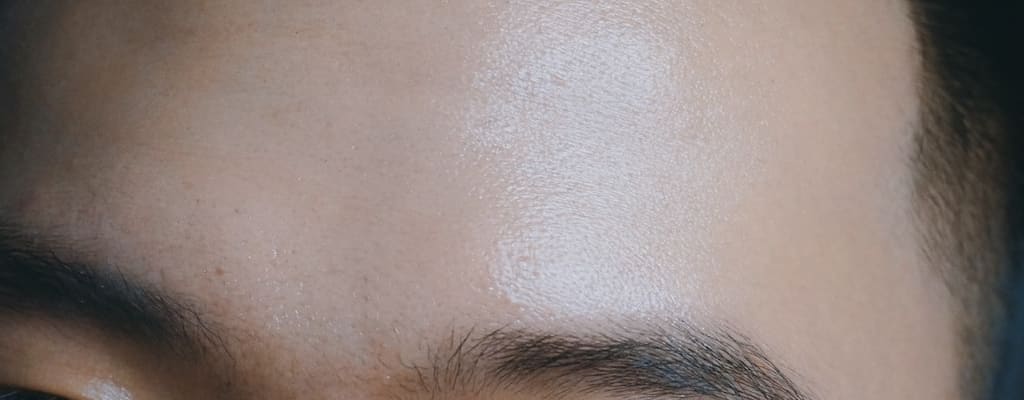shut one’s trap: Idiom Meaning and Origin
What does ‘shut one's trap’ mean?
The idiom "shut one's trap" means to be quiet or stop talking, especially when someone is being annoying or saying something unwanted. It is a colloquial expression that can be considered rude or impolite in certain contexts.

Idiom Explorer
The idiom "tell someone where to shove it" means to angrily reject or dismiss someone or something, often with hostility or contempt.
The idiom "take one's hook" means to leave or depart, often in a sneaky or secretive manner. It conveys the idea of someone quietly removing themselves from a situation or place.
The idiom "stuff it" means to forcefully or angrily tell someone to be quiet or stop talking. It is a direct and rude way of asking someone to stop speaking or expressing their opinion.
The idiom "strangle the parrot" means to silence or suppress someone or something, usually in a forceful or oppressive manner.
The idiom "stop someone in their tracks" means to halt or interrupt someone suddenly, causing them to pause or cease their current action or thought. This expression implies a strong, unexpected impact or surprise that prevents further progress or movement.
The idiom "stick one's head in the sand" means to ignore or refuse to acknowledge a problem or unpleasant situation, often out of fear or denial.
The idiom "stick one's foot in one's mouth" means to say something that is embarrassing, rude, or tactless, usually unintentionally.
The idiom "sit tight" means to stay in a place or position and wait patiently without taking any action until a particular situation or instruction changes.
The idiom "sit one's ass down" means to forcefully or urgently encourage someone to take a seat and stay quiet or listen attentively.
Decoding the Enigma
The idiom 'shut one's trap' is closely related to other idioms that also involve shutting or closing some part of the body. One such idiom is 'shut one's mouth', which has a similar meaning of being quiet or not speaking. Another related idiom is 'shut one's face', which is a more informal and often slightly rude way of telling someone to be quiet. Similar to 'shut one's face', there is also the idiom 'shut my mouth', which is a way of saying that one will not speak or reveal something. 'shut one's gob' is yet another related idiom, where 'gob' is a slang term for the mouth. Lastly, there is 'shut one's eyes', which means to deliberately ignore or pretend not to see something. These idioms all involve some form of closure or restraint, whether it be shutting the mouth, the face, the mouth again, the gob, or the eyes.
While 'shut one's trap' is an informal and casual idiom, it conveys a strong sense of authority or annoyance towards someone who is being talkative or bothersome. It is often used in everyday conversations among friends or acquaintances. The idiom can be used to assert dominance over someone and to tell them to stop speaking. In a way, it is a straightforward and direct way of expressing one's desire for silence or to end a conversation.
However, it is important to note that the usage of 'shut one's trap' may vary in different regions or social contexts. While it is generally accepted in informal settings, it may be considered rude or impolite in more formal situations. In such situations, it is advisable to use a more tactful or polite expression to convey the same meaning.
Despite its informality and potential rudeness, 'shut one's trap' remains a prevalent idiom in American English. Its longevity and continued usage over the past century demonstrate its endurance and relevance in everyday conversation. Whether it is used to express annoyance or to establish authority, this idiom serves as a concise and effective way to convey the message of being quiet or stopping talking.
'shut one's trap' is an American English idiom that means to be quiet or to stop talking. Its origins are uncertain, but it has been in usage for over a century. This idiom is related to other idioms such as 'shut one's mouth', 'shut one's face', 'shut my mouth', 'shut one's gob', and 'shut one's eyes', all of which involve closing or restraining some part of the body. 'Shut one's trap' is considered an informal expression and is often used in casual conversations. While its usage may vary in different contexts, it remains a prevalent idiom in American English.
Example usage
Examples of how the idiom *shut one's trap* can be used in a sentence:
- He should have shut his trap instead of revealing our surprise party plans.
- She needs to learn to shut her trap and listen to others.
- I had to shut my trap in order to keep from saying something hurtful.
More "Colloquial" idioms



